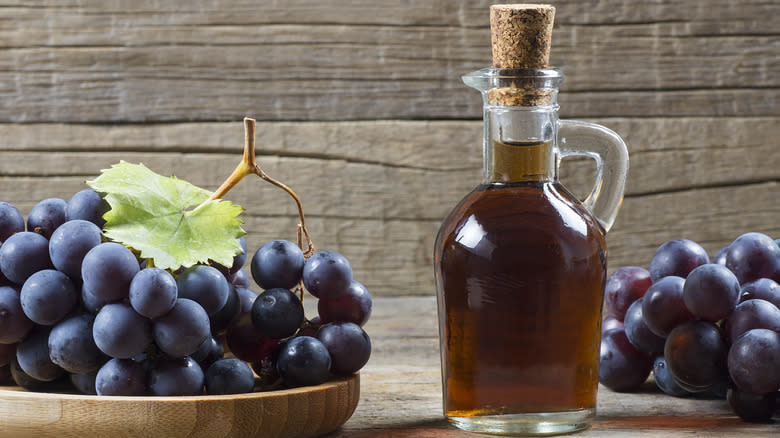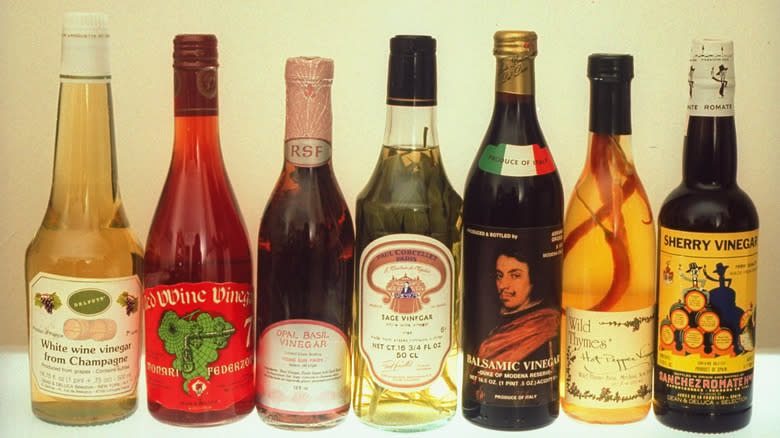Is There Any Alcohol In Wine Vinegars?

Vinegar has been around for many thousands of years — as long as fermented beverages have been made, and that's because vinegar is made from alcohol-containing liquid. In fact, the word vinegar comes from the French term "vin aigre," meaning sour wine, which describes what happens if the microbe that makes vinegar happens to land in a vat of wine. That's how different types of vinegar get their descriptive names: Red wine vinegar, sherry vinegar, and rice wine vinegar are all made from their namesake alcohols.
The vinegar-making process is called secondary fermentation because, first, yeast converts a sugary liquid into alcohol. In the second step, the acetobacter bacteria consumes the alcohol and produces acetic acid, which is the scientific name for the tart acid that makes vinegar.
Try as they might, the little microbes don't generally have their way with every last bit of the alcohol; a small trace typically remains. The longer the vinegar is left to ferment, the less alcohol will be present, but no worries. The percentage is so tiny that some other foods like bread and juice can naturally have alcohol content in the same range even though they don't start from an alcohol source.
Read more: Vinegar Cooking Hacks You'll Wish You Knew Sooner
A Tiny Bit Of Alcohol Might Matter

It might be a little surprising to hear there is a bit of alcohol in foods that you expect to be alcohol-free, like bread and even over-ripe fruit, but yeast fermentation of a wide variety of foods is a natural process that happens all the time. The U.S. government regulates the amount of alcohol permitted in all vinegars to a maximum of 2%, which is an amount that's not considered intoxicating because of the acidic nature of vinegar. You wouldn't be able to drink enough to get buzzed before the acid would hurt you. Many vinegar producers' products have lower trace alcohol content, around 0.2%.
So, although some people swear by drinking apple cider vinegar for health reasons, even that practice doesn't involve much alcohol — a couple of tablespoons might contain the equivalent of just a drop or two of alcohol. If you're trying to strictly avoid alcohol for any reason, you might want to use lemon juice or another sour ingredient to balance your cooking since it's quite likely your vinegar bottles retain a small amount of the spirit they once were.
Read the original article on Tasting Table

